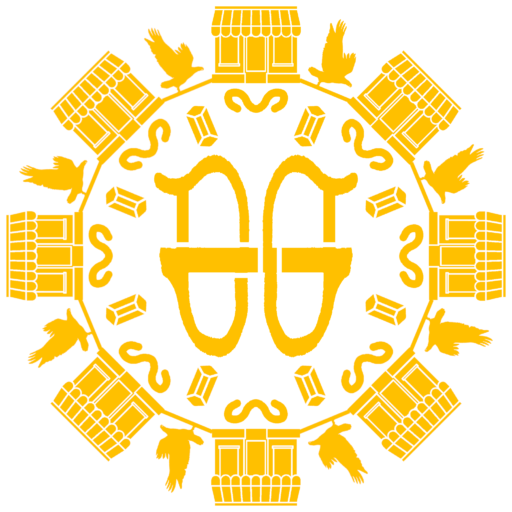While Africans were given names upon being forcibly brought to America, there were some names which were recorded or stayed with the people for generations.
Banneker
This was the name of Benjamin Banneker, who was the biracial, polymathic surveyor who provided the measurements for the space that would become Washington D.C. The name Banneker may have been an Anglicization of the name \”Banaka\” or other variants which may have roots in the Vai people who lived in the Mali Empire prior to moving westward in the 1500s. Banaka was also the name of a village in northwestern Liberia. \”Banaka\” may also have been associated with the Dogon people, who had knowledge of astronomy, which–as anthropologists argued in the 2002 biography about Benjamin Banneker-may have explained how Benjamin received knowledge about astronomy.
Cato
Although there have been slaves with this name, it is not clear where it came from. It does bear resemblance to the ancient Roman name Cato, however it may have been used to Anglicize a previous African name. That African name may have been Keita, which was rooted in the Keita dynasty, who ruled the Mali Empire.
Bearers of this Name:
- Cato: leader of the Stono Slave Rebellion
- Cato: a spy during the American Revolution on the side of the Americans.
Congo
This is the name of the region in Central Africa.
Bearer of this Name:
- Louis Congo: he was a freed African slave who became the public executioner in Louisiana. His name Louis may have been derived from Louisiana, and Congo from the region he claimed to be originally from. What was unique about this man was that he could sign his own name.
Cudjoe
It is typical in African names, specifically in West Africa, to give a child the name of the week-day that they were born. In the case of Cudjoe, it is derived from the Ghana word meaning \”Monday.\”
Bearers of this Name:
- Boris Cudjoe: German actor known for appearances on Soul Food (2000) and Resident Evil films Afterlife (2010) and Retribution (2012).
- Cudjoe Lewis: one of the last survivor of the the Clotilde and the Transatlantic Slave Trade.
Coffee/Cuffy
It may have been derived from the name Kofi, which is derived from the Akan tribe, meaning \”born on a Friday.\” Once again, just like Cudjoe, this name is intended for those born on a Friday.
Bearers of this Name:
- Coffy: the leader of a slave rebellion in Guiana.
- William Cuffay: a biracial Chartist leader in London during the Victorian period.
Quander
They were originally from the Fanti tribe in Ghana. The name Quander originally came from the original African who was brought to America who gave his name as Kwandoh. Descendants would use the name Quander as their surname and they typically live in the Virginia and Maryland areas.
Quock
This was the name of the former slave Quock Walker, who successfully sued the state of Massachusetts for his freedom in 1780, citing a clause in the Massachusetts Constitution stating that all men are born equal.
Quock, it turns out, is an Anglicization of the Akan name Kwaku, which is given to any child born on a Wednesday.
Redoshi
This was supposed to be the name of the last African forcibly brought to America, along with Cudjoe Lewis. She would later be given the name Sally Smith by her master.
Sources
- \”Boris Kudjoe.\” IMDb.
- Cerami, Charles A. (2002). Benjamin Banneker: Surveyor, Astronomer, Publisher, Patriot. New York: John Wiley & Sons. Retrieved September 19, 2019 – via Internet Archive.
- \”Cudjoe Kazoola Lewis Sr.\” Find A Grave.
- Dawdy, Shannon Lee. \”The Burden of Louis Congo and the Evolution of Savagery in Colonial Louisiana.\” Discipline and the other body: correction, corporeality, colonialism. Edited by Steven Pierce & Anupama Rao. Duke University Press, 2006. pp 61–89.
- Diouf, Sylviane A. (2007). Dreams of Africa in Alabama: The Slave Ship Clotilda and the Story of the Last Africans Brought to America. New York: Oxford University Press.
- Garcia, Sandra E. (April 3, 2019). \”She Survived a Slave Ship, the Civil War and the Depression. Her Name Was Redoshi\”. The New York Times.
- Heinegg, Paul (December 11, 2016). \”Banneker Family\”. Free African Americans of Virginia, North Carolina, South Carolina, Maryland and Delaware: Free African Americans of Maryland and Delaware: Adams-Butler. Archived from the original on June 24, 2017.
- Hoyles, Martin (2013). William Cuffay: The Life & Times of a Chartist Leader. Hertford, Hertfordshire, SG14 3WY: Hansib Publications Ltd.
- Imperato, Pascal James; Imperato, Gavin H. (2008-04-25). Historical Dictionary of Mali. Scarecrow Press.
- Israel, Jeff. \”African-civilizations-map-pre-colonial.\” Wikipedia. 2007. CC BY-SA 3.0. Changes include zooming, placing image before two images, and removing the box.
- Kamunya, Mercy (2018-10-19). \”Akan names and their meanings\”. Yen.com.gh – Ghana news.
- Niven, Steven J. (22 February 2016). \”The Stono River Slave Rebellion Was Nearly Erased from SC\’s History Books\”. The Root.
- O\’Donovan, Connell. \”Descendants of Mingo and Dinah: From West Africa to Colonial Massachusetts\”. O\’Donovan website, hosted at University of California, Santa Cruz.
- \”Quander family.\” Wikipedia.
- \”Quock Walker Case\”, Africans in America, PBS-WGBH
- Ramsay, Rehanna (28 July 2013). \”\’Cuffy\’ – a symbol of struggle and freedom\”. Kaieteur News. Retrieved 24 November 2018.
- Rose, Alexander (2007). Washington\’s Spies: The Story of America\’s First Spy Ring. New York: Bantam Dell. pp. 224–226.
- Still, Lawrence A. (September 1984). \”The Quanders: America\’s Oldest Black Family\”. Ebony. Johnson Publishing. 39 (11): 131–132.
- Sublette, Ned. The world that made New Orleans: from Spanish silver to Congo Square. Chicago Review Press, 2008.
